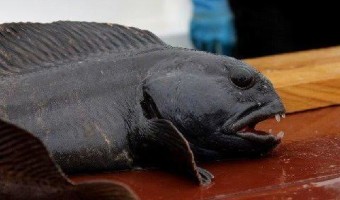Bonaire deaths occur on a daily basis!
No not divers but Lionfish!!
Lionfish are not native to this Caribbean Island but have arrived! How come, Well several theories abound.
1. Did they swim? Maybe the water seemed better on this side of the ocean!
2. Did bad weather and predators send them in search of a new life?
3. Did they arrive in the ballast tanks of ships?
This happens when ships are in port and take on water in their ballast tanks before going on long journeys, and when they arrive in port, empty their tanks and discharge the water, and in so doing 're-locate' fish life from their home port to the new one. With this in mind, not only should there be more alien fish in the caribbean! but all fish should be found 'world-wide'.
4. Fish tank keepers maybe dumped them in the water? Well, they do grow big don't they, also with its renowned appetite for all other fish smaller than itself, that in itself is a good reason to get rid of it. Also lets be honest but those nasty spines are a real problem when cleaning out the tank. The first case of Lion Fish poisoning i ever saw was a local fish shop keeper whose hand had come too close and received a gentle stroke, wow did it blow up !!
5. Another theory is that a hurrican destroyed an aquarium in Florida and they escaped?
Possible, but it means that not only do they breed 'like Rabbits', but that they can swim thousands of miles North (as far as Bermuda) & South (Bonaire), take their mate with them and then set up home miles away in a foreign country .
Whatever the reason these fish are not wanted because they reportedly eat all the other fish around the islands So divers are asked to take a cork and piece of string to mark where they see a Lion fish, and report back the depth and position of the cork so they can be 'disposed' of accordingly. The strange thing about doing this and marking them to be removed later, is that it means these fish do not travel very far. ( hang on we just reckoned they swam thousands of miles) Any way.take this a step further and in theory if they stay in one place the Lion Fish shouldn't be a problem as they could all be rounded up and 're-located'. Problem solved.
Lionfish have a few natural predators, apparently Groupers being one of them (and there are quite a few groupers in the Caribbean). I saw a Scorpionfish corner and devour a lion fish once, feathers everywhere. Why is it that there are plenty of Lion Fish in other areas like Indonesia and the Maldives and at the same time they are pushed for space with all the other small fish sharing their accommodation.
This raises the question, are the Lionfish really eating the local fish out of house and home. Maybe there is another predator who is upsetting the balance between nurture and nature. Take for instance us humans and our eating habits. Fish appear on all the menus on all the restaurants in all the countries of the world. Fish products are given to our animals to eat, fish oils are used in cosmetics, and so on. Pollution and chemicals wipe out great swathes of fish life.
Maybe it is the lion fish which is adapting to changes in its natural habitat brought about by other factors, and we are not seeing the wood for the trees and blaming the reduction in fish life on ITS eating habits and not OURS. Should we really be blaming this beautiful fish for the lack of local sea life?
